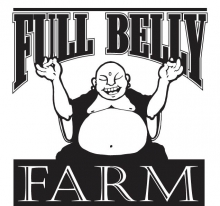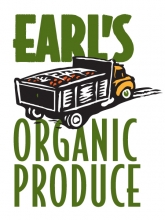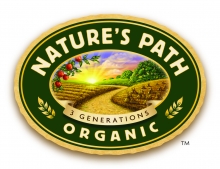Hope Beneath our Feet – The Solution to Climate Change is Soil
The new Rodale white paper—titled Regenerative Organic Agriculture and Climate Change: A Down-to-Earth Solution to Global Warming, will be delivered to lawmakers in Washington, DC, in October, 2014. It brings the broad message from a global coalition of organic farmers, scientists, and food justice advocates that solving the long-term climate equation is not just about reducing emissions; it also must be mitigated by on-farm soil carbon sequestration. From the report:
"There is a technology for massive planetary geoengineering that is tried and tested and available for widespread dissemination right now. It costs little and is adaptable to local contexts the world over. It can be rolled out tomorrow providing multiple benefits beyond climate stabilization. The solution is farming. Not just business-as-usual industrial farming, but farming like the Earth matters. Farming like water and soil and land matter. Farming like clean air matters. Farming like human health, animal health and ecosystem health matters. Farming in a way that restores and even improves on soil’s natural ability to hold carbon."
Vandana Shiva asserts that soil sequestration can not only create “a 100 percent solution” in terms of carbon, but it will also address “the health problem, the unemployment problem, the poverty problem, and the water problem,” all at once!
In this special opening session for the 35th EcoFarm Conference we will look at how ecological farming practices can improve conditions that are symptoms and consequences of the climate crisis: water shortages, biodiversity loss, erratic weather patterns, and reliance on fossil fuels.
Invocation –
Invocation - Bill McKibben
(remote presentation by video)
Author and Founder of 350.org, Lake Champlain, NY
The gap between "We're all sitting ducks" and "We do not face a crisis" is the gap between half-hearted action and the all-out effort that might make a difference in the human response to climate change. It's the gap between changing light bulbs and changing the system that's powering planetary destruction. Bill will provide the overview of changing this system and provide the call to action that farmers and non-farmers alike need to hear.
Thinking Like a Watershed – Brock Dolman
Occidental Arts and Ecology Center, Occidental, CA
The pressing ecological & economic problems of our current agro-bio-cultural diversity crisis require that we learn to think like a watershed – both poetically and pragmatically – to understand how human settlement practices impact the water cycle. No Water – No Life – No Water – No Food. Agricultural Water Stewardship and Climate Adaptation through Community Resilience Design is the focus of this lively presentation, with analysis, strategies, and techniques that support both regenerative ecological integrity and social resiliency. The principles of Conservation Hydrology and Applied Permaculture Design will be shared as inspiration for working farmers and consumers of food alike with creative solutions for conserving agro-biodiversity and native ecosystems on “Planet Water.”
Hot Times on the Old Farm & How to Grow With It - Gary Nabhan
Almunia de los Zopilotes Experimental Orchard, Patagonia, AZ
With climatic uncertainty now “the new normal,” many farmers in North America are desperately seeking ways to adapt how they grow food in the face of climate change. Applicable solutions that farmers need today can be found in the rich history of desert agricultural systems. By surveying the world’s desert horticultural oases, Gary Nabhan offers a variety of ready-to-implement adaptations to climate change that have been tested over centuries and millennia by traditional farmers and food producers among diverse desert cultures. The strategies found through bio-mimicry, eco-mimicry and etno-mimicry will be highlighted. In particular, on-farm pollination of low-chill fruit trees will be featured.
Track and Session Info
Session:
Keynote | 8:00 pm
Date and Location
Date:
Wed, Jan 21, 2015
Location:
Merrill Hall (overflow in Chapel)
Day:
Wednesday
Presenter(s):
Bill McKibben
Title:
Bill McKibben
Bio:
Bill McKibben is an author and environmentalist. His 1989 book The End of Nature is regarded as the first book for a general audience about climate change, and has appeared in 24 languages. He is founder of 350.org, the first planet-wide, grassroots climate change movement. The Schumann Distinguished Scholar in Environmental Studies at Middlebury College and a fellow of the American Academy of Arts and Sciences, he was the 2013 winner of the Gandhi Prize and the Thomas Merton Prize, and holds honorary degrees from 18 colleges and universities. Foreign Policy named him on their inaugural list of the world's 100 most important global thinkers, and the Boston Globe said he was "probably America's most important environmentalist." A former staff writer for the New Yorker, he writes frequently on a wide variety of publications around the world, including the New York Review of Books, National Geographic, and Rolling Stone. He lives in the mountains above Lake Champlain with his wife, the writer Sue Halpern.
Brock Dolman
Title:
Brock Dolman
Presenter Affiliation:
Occidental Arts and Ecology Center
Gary Paul Nabhan
Title:
Gary Paul Nabhan
Presenter Affiliation:
Make Way for Monarchs

















